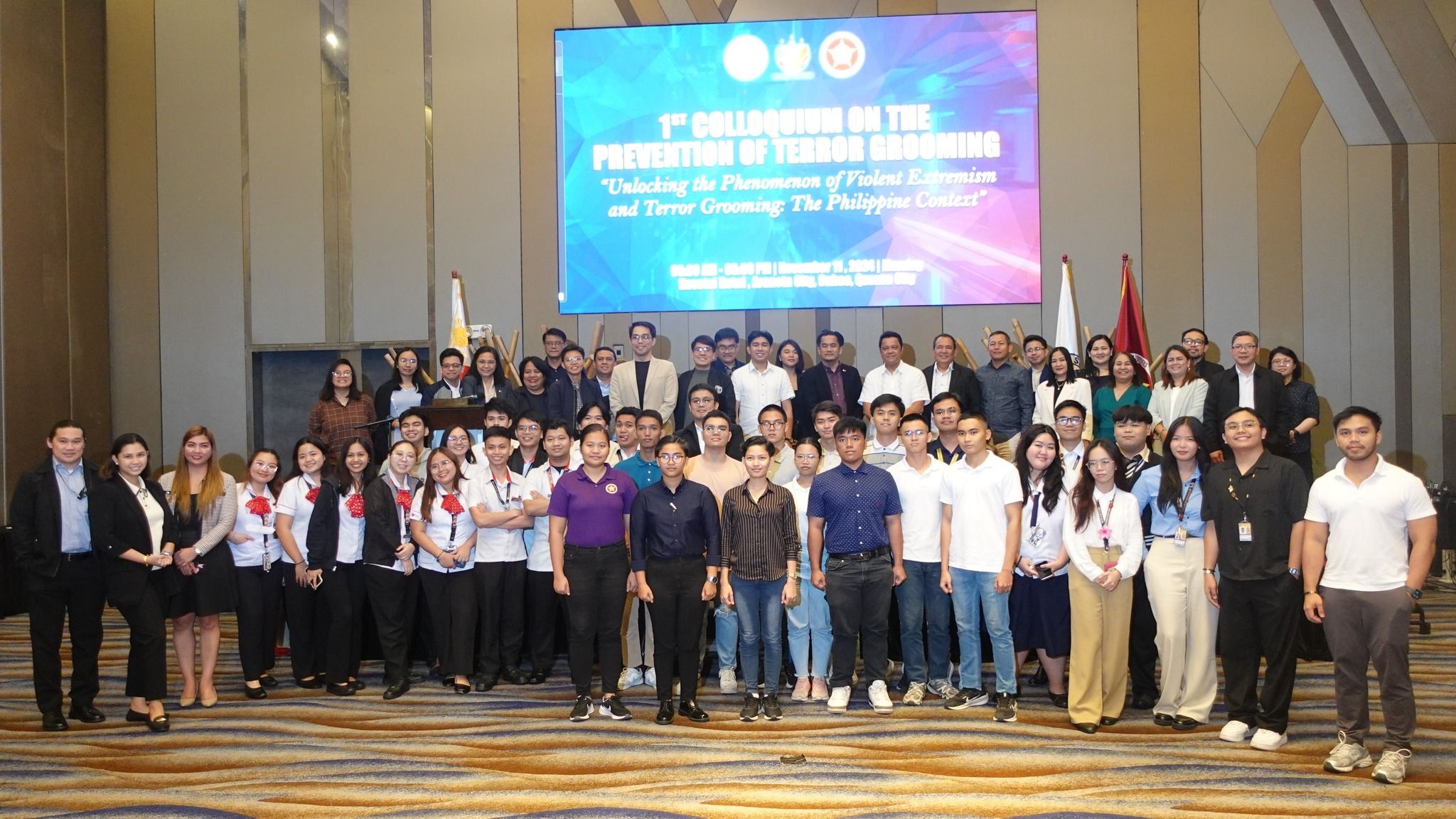NSC-led seminar with PUP delves on youth vulnerability to violent extremism

An academic seminar spearheaded by the National Security Council (NSC) tackled the vulnerability of Filipino youth to violent extremism with hopes of raising awareness to prevent them from falling prey into groups engaged in “terror-grooming”.
The 1st Colloquium on the Prevention of Terror Grooming and Violent Extremism, held in Quezon City last week in partnership with the Polytechnic University of the Philippines (PUP), explored the “potential systemic manipulation of young individuals into joining extremist and armed groups,” according to NSC Asst. Director General Jonathan Malaya.
The seminar featured academics and policymakers who all agreed that the vulnerability of Filipino youth to terror-grooming and violent extremism is a significant threat to national security.
Among them was University of Santo Tomas (UST) Department of Political Science chairperson Dr. Dennis Coronacion, who identified social inequalities and lack of opportunities as some of the primary factors driving youth toward extremist ideologies.
“Understanding the phenomenon is the first step in dismantling it,” Coronacion said, emphasizing the need for productive political engagement and addressing the root causes of radicalization.
Meanwhile, Jose Torres, former director general of the Philippine Information Agency, highlighted the role of disinformation in recruitment efforts.
“We need to empower communities with the tools to identify and resist disinformation,” Torres stated, pointing to the urgent need for media literacy and grassroots education.
For Miriam College Prof. Rej Torrecampo, terrorist groups exploit emotional and psychological weaknesses, especially among vulnerable youth.
“Community-based support systems are crucial for protecting youth, creating safe spaces where they can access vital resources,” Torrecampo said.
Lastly, Far Eastern University (FEU) Assoc. Prof. Melquiades Acomular Jr. argued that the erosion of trust in government institutions exacerbates the vulnerability of youth.
“We need to ensure that the government is a trustworthy institution committed to protecting its citizens. This requires transparency and accountability,” he noted.
The colloquium also delved into the role of the digital space in spreading extremist propaganda. Experts warned that unchecked online platforms expose youth to radical content, necessitating stricter regulation and robust digital literacy campaigns.
“The findings from the colloquium are expected to inform future policies aimed at strengthening community resilience and protecting the country’s most vulnerable demographic,” Malaya said.
The national government is looking to intensify the government’s information awareness campaign against various recruitment techniques by insurgency groups, particularly the Communist Party of the Philippines – New People’s Army – National Democratic Front (CPP-NPA-NDF) and its front organizations, in learning institutions.
President Marcos Jr. approved the inclusion of the Coordinating Council for Private Education Association (COCOPEA) – an umbrella organization of around 1,500 private schools across the country – as an official member of the executive committee of the National Task Force to End Local Communist Armed Conflict (NTF-ELCAC) during a high-level meeting last Nov. 8.
But the move was scrutinized by progressive groups Kabataan Partylist and Anakbayan which argued that schools “should be spaces for learning, for free expression and organization, and not repression of critical thought.”